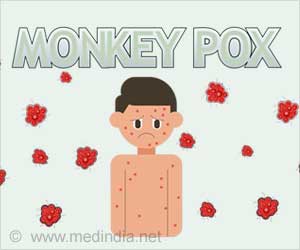Are genes and genius related? Clues to this can be found in Mario Capecchi, one of the winners of this year’s Nobel Prize for Medicine.
Capecchi's grandmother was a painter, his uncle a renowned physicist, and his mother Lucy Ramberg an American poet living in a chalet in the Italian Alps when Mario was born in 1937. She had fallen in with a group of bohemian writers who believed, her son says with just a trace of bemusement that "they could wipe out Fascism and Nazism with a pen." After the Gestapo came in 1941 to take her to Dachau, Mario landed on the streets. He was 4 years old.Yet as he says himself, "I never felt sorry for myself. "Children are remarkably adaptable. Put them in a situation, and they simply will do whatever it is they need to do." With his gang of urchin friends, they worked together to steal food in order to survive. Capecchi finally landed in a hospital in Reggio Emilia, where he was under surveillance. The daily ration was a piece of bread and some chicory coffee, and to keep the children from running off, "they took all of our clothes away." He lay on a bed with no sheets, no blankets, feverish with hunger. As he says, it was there he learned the art of patient plotting as he imagined all the ways he might escape and the obstacles he'd face to do so.
In 1945, when American soldiers liberated Dachau, his mother Lucy went hunting for him. She scoured hospital records, searching for more than a year before she tracked him down. It was on his 9th birthday, Oct. 6, 1946, that the mother he scarcely recognized arrived. She took him to Rome, where he had his first bath in six years, and ultimately to the New World, where they settled in a Quaker commune outside Philadelphia.
Creativity, says Capecchi comes from "the abrasive juxtaposition" of life experiences. His old life and new one certainly rubbed each other raw. Some teachers wrote off the feral boy who had never set foot in a school and spoke no English; but others gave him paints and told him to make murals to communicate. He was aggressive and prone to picking up fights and he was good at them , too.
Capecchi ultimately found his way to Harvard, the center of the universe in the early days of molecular biology. But he felt crowded by colleagues whose rivalries consumed them as much as their research. So he set off for the University of Utah, where the sight lines suited him better and collegiality was the key to success. The rest is history.
Capecchi looks at science as a series of circles: the smallest circle is the one in which everyone is doing the same thing. As you move farther out, "fewer people are willing to go there, but you're charting new areas. Go too far, step out of bounds, and you're in science fiction. So you have to be careful. But you want to be as close to the edge as possible." When he first proposed manipulating mouse genes to help model disease, the nih gatekeepers thought he was over the line. "Not worthy of pursuit," they said of his grant proposals. Happily of course, Capecchi never listened to them.
Advertisement
ANN/C





